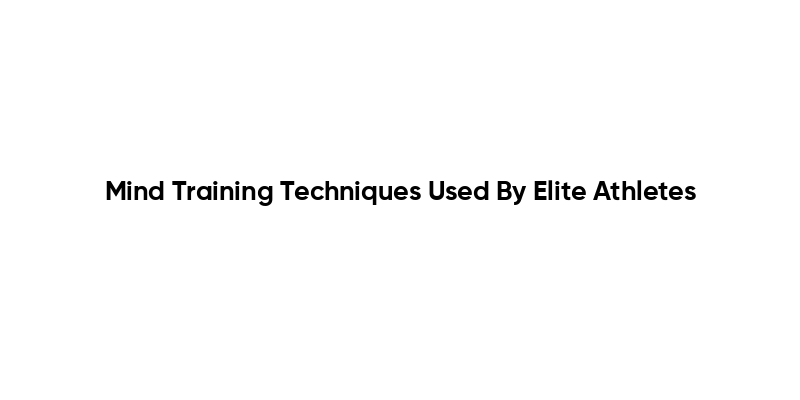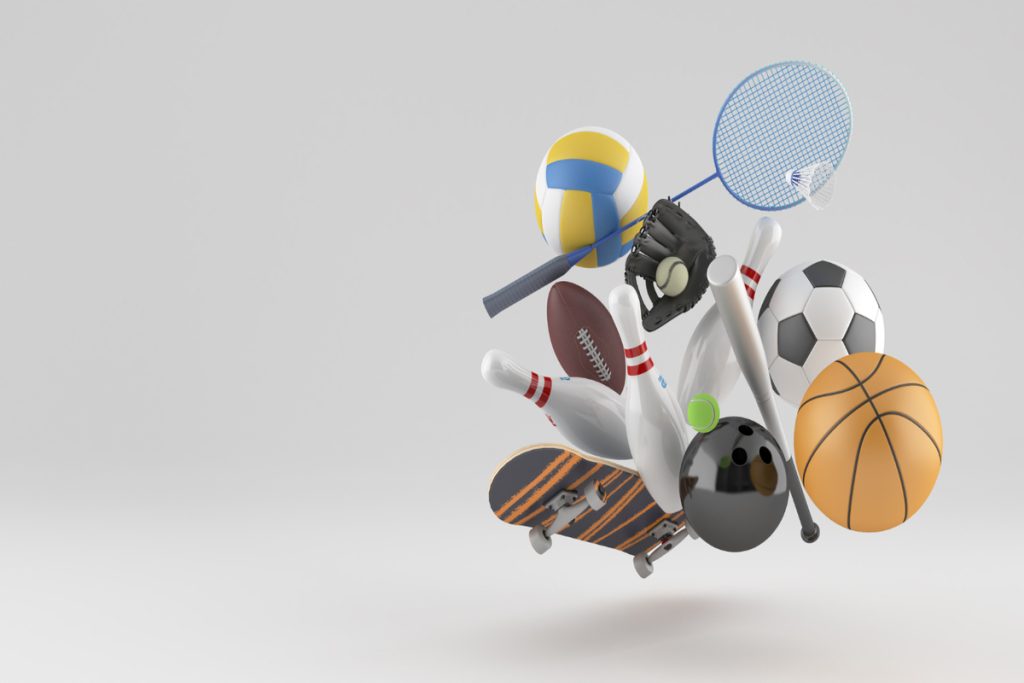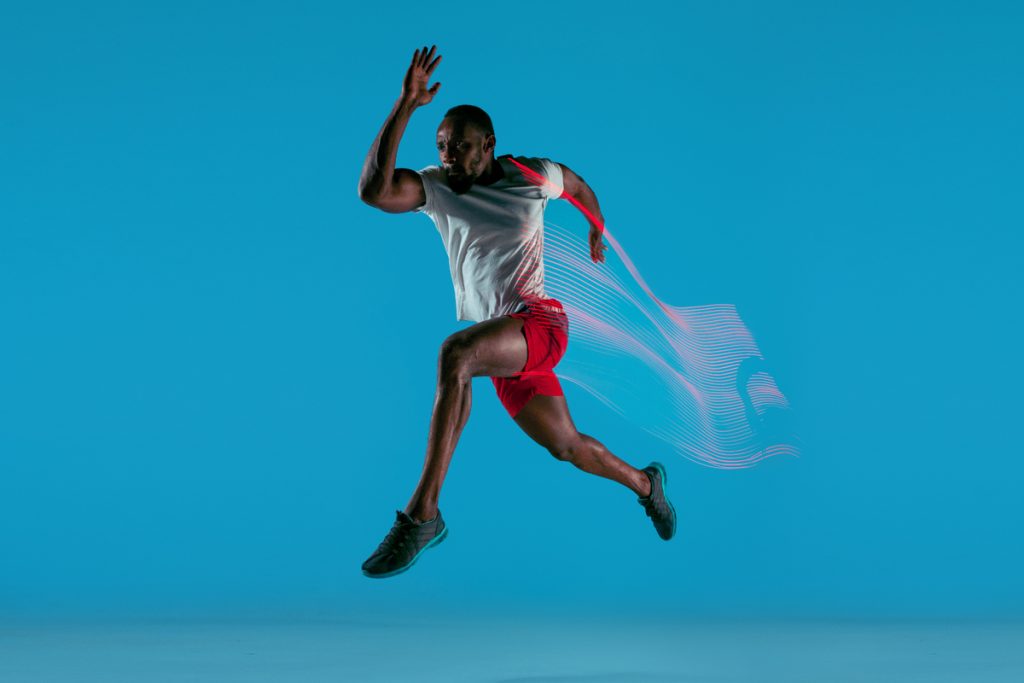In the world of sports, physical prowess is only part of the equation for success. Elite athletes understand that mental strength is equally crucial, leading them to adopt various mind training techniques to enhance their performance. These techniques, which include visualization, mindfulness, and positive self-talk, are designed to sharpen focus, boost confidence, and cultivate resilience. By integrating these practices into their training regimens, athletes can unlock their full potential and gain a competitive edge.
In this article, we will delve into the specific mind training techniques employed by top-tier athletes across various sports. You will learn how visualization can help athletes mentally rehearse their performances, allowing them to prepare for high-pressure situations. Additionally, we will explore the role of mindfulness in maintaining composure and clarity during competitions, as well as the power of positive self-talk in overcoming self-doubt and fostering a winning mindset.
As you continue reading, you will discover practical tips and strategies that you can apply, whether you are an aspiring athlete or simply looking to improve your mental game in everyday life. The insights shared in this article will not only inform you about the mental techniques used by elite athletes but also inspire you to incorporate these practices into your own routine. Join us on this journey to unlock the secrets of mental training and elevate your performance to new heights!
Elite athletes often rely on a variety of mental training techniques to enhance their performance. These techniques not only help them to focus and maintain composure under pressure but also contribute to their overall mental well-being. Below are some key subtopics that delve into the mind training strategies employed by top athletes.
Visualization Techniques
Visualization is a powerful mental training technique used by elite athletes to enhance performance. This method involves creating vivid mental images of successful performances, allowing athletes to mentally rehearse their actions before executing them in real life. By visualizing their movements, athletes can improve their muscle memory and boost their confidence.
Research has shown that visualization can activate the same neural pathways as actual physical practice. This means that when athletes visualize their performance, they are essentially training their brains to respond as if they were physically engaged in the activity. This technique is widely used in sports like gymnastics, swimming, and track and field, where precision and timing are crucial.
Mindfulness and Meditation
Mindfulness and meditation are increasingly popular among elite athletes as tools for enhancing focus and reducing anxiety. These practices encourage athletes to stay present in the moment, which can help them manage stress and maintain concentration during competitions. By incorporating mindfulness into their training routines, athletes can develop a greater awareness of their thoughts and feelings, allowing them to respond more effectively to challenges.
Studies have indicated that regular mindfulness practice can lead to improved emotional regulation and resilience. Athletes who meditate often report feeling more relaxed and less overwhelmed by the pressures of competition. This mental clarity can be a game-changer, especially in high-stakes situations where every second counts.
Goal Setting Strategies
Effective goal setting is a cornerstone of mental training for elite athletes. By establishing clear, achievable goals, athletes can create a roadmap for their training and performance. This process not only provides motivation but also helps athletes to track their progress and make necessary adjustments along the way.
SMART goals—Specific, Measurable, Achievable, Relevant, and Time-bound—are particularly effective in sports psychology. Athletes who utilize this framework are more likely to stay focused and committed to their training regimens. Additionally, breaking down larger goals into smaller, manageable tasks can help maintain motivation and prevent burnout.
Positive Self-Talk
Positive self-talk is another essential mental training technique used by elite athletes. This practice involves replacing negative thoughts with affirming statements that boost confidence and motivation. By cultivating a positive internal dialogue, athletes can enhance their self-belief and reduce performance anxiety.
Research has shown that athletes who engage in positive self-talk are more likely to perform better under pressure. This technique can be particularly beneficial during challenging moments in competition, as it helps athletes to maintain focus and composure. Incorporating positive affirmations into daily routines can significantly impact an athlete’s mindset and overall performance.
Breathing Techniques
Breathing techniques are vital for managing stress and maintaining focus during competitions. Elite athletes often use specific breathing exercises to calm their nerves and enhance their concentration. Techniques such as diaphragmatic breathing and box breathing can help regulate heart rate and promote relaxation.
By practicing controlled breathing, athletes can create a sense of calmness that allows them to perform at their best. This technique is especially useful in high-pressure situations, where maintaining composure is crucial. Incorporating breathing exercises into training routines can lead to improved mental clarity and focus during competitions.
Mental Resilience Training
Mental resilience is the ability to bounce back from setbacks and maintain a positive outlook in the face of adversity. Elite athletes often engage in resilience training to develop coping strategies that help them navigate challenges both in and out of competition. This training can involve exposure to simulated pressure situations, allowing athletes to practice their responses and build confidence.
Building mental resilience is essential for long-term success in sports. Athletes who are mentally resilient are better equipped to handle failures and setbacks, viewing them as opportunities for growth rather than obstacles. This mindset can significantly enhance an athlete’s performance and overall enjoyment of their sport.
| Technique | Description | Benefits |
|---|---|---|
| Visualization | The practice of imagining successful performance in detail. | Enhances confidence, reduces anxiety, and improves focus. |
| Mindfulness Meditation | A technique that involves being present in the moment and observing thoughts without judgment. | Increases concentration, reduces stress, and promotes emotional regulation. |
| Positive Self-Talk | Using affirmations and positive statements to boost self-esteem and motivation. | Improves mental resilience and combats negative thoughts. |
| Goal Setting | Establishing clear, measurable, and achievable objectives. | Provides direction, enhances motivation, and fosters a sense of accomplishment. |
| Breathing Techniques | Practices that focus on controlled breathing to manage stress and anxiety. | Promotes relaxation, improves focus, and enhances performance under pressure. |
| Routine Development | Creating a consistent pre-performance routine to enhance focus and reduce anxiety. | Increases familiarity and comfort, leading to improved performance. |
| Imagery Training | Using mental imagery to rehearse skills and strategies. | Enhances skill acquisition and prepares the mind for competition. |



